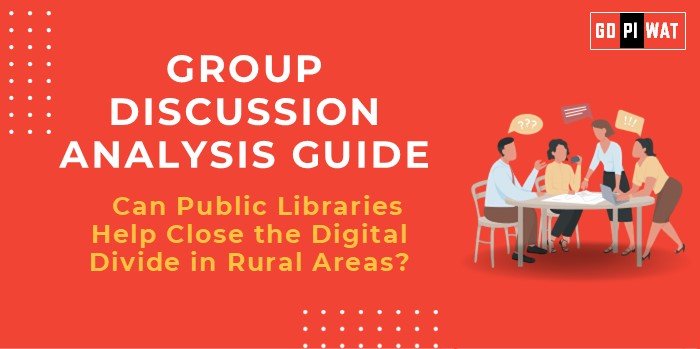📚 Can Public Libraries Help Close the Digital Divide in Rural Areas?
🌐 Introduction to the Topic
In rural areas, where access to digital infrastructure is limited, public libraries can serve as hubs for digital inclusion by providing resources such as internet connectivity, digital tools, and training. With initiatives like BharatNet in India, libraries are uniquely positioned to empower rural communities and bridge the digital divide.
📊 Quick Facts and Key Statistics
- 💻 Rural Internet Access: Only 20% of rural households have reliable internet access.
- 📚 Public Libraries in India: Over 70,000 libraries nationwide, many in rural regions.
- 🖥️ Digital Literacy Programs: PMGDISHA has trained 6.7 crore rural citizens.
- 📡 BharatNet Reach: 1.8 lakh gram panchayats now have broadband connectivity.
- 🌍 Global Benchmark: Finland’s libraries serve as digital hubs, achieving near-total digital literacy.
👥 Stakeholders and Their Roles
- 🏛️ Government Agencies: Invest in equipping libraries with digital tools and internet connectivity.
- 🌐 Local Administrations: Promote digital literacy programs through libraries.
- 📖 Library Staff: Act as facilitators for training and digital services.
- 🤝 NGOs: Develop and support community-based digital initiatives.
- 🏡 Rural Communities: Actively engage with library services to develop digital skills.
🏆 Achievements and Challenges
✨ Achievements:
- Community Access Points: Libraries provide free internet and digital resources in rural areas.
- Digital Literacy Hubs: Integration of PMGDISHA programs into library services.
- Local Innovations: Kerala’s libraries serve as digital resource centers with 93% digital literacy.
⚠️ Challenges:
- Resource Scarcity: Many libraries lack adequate funding for digital tools.
- Low Awareness: Rural populations are often unaware of available library resources.
- Sustainability: Irregular funding creates long-term planning challenges.
🌍 Global Comparisons and Case Studies
- 🇫🇮 Finland: Libraries provide free digital skill training and internet access, setting a global benchmark.
- 🇰🇷 South Korea: Libraries serve as e-learning centers with high-speed connectivity.
- 🇮🇳 Kerala’s Digital Libraries: Fully digitized libraries integrated with community programs.
- 🇮🇳 Rajasthan’s Digital Inclusion: Libraries offer online services across all districts.
🗣️ Structured Arguments for Discussion
✅ Supporting Stance:
“Public libraries can bridge the rural digital divide by offering free internet and skill-building programs, especially where household access is minimal.”
❌ Opposing Stance:
“Many rural libraries lack the resources and infrastructure needed to effectively address the digital divide.”
⚖️ Balanced Perspective:
“While libraries have the potential to close the digital gap, their effectiveness depends on targeted investments and community involvement.”
💡 Effective Discussion Approaches
- 📊 Statistical Opener: “Only 20% of rural households in India have reliable internet, highlighting the urgent need for accessible digital hubs like libraries.”
- 🌍 Global Comparison: “In Finland, libraries have transformed digital access, a model India can adapt for rural areas.”
- 🤔 Counter-Argument Handling: Use Kerala’s success as an example to propose solutions for funding and awareness challenges.
🔍 Strategic Analysis
- 💪 Strengths: Existing infrastructure, community presence, and integration with government initiatives.
- 🤔 Weaknesses: Funding shortages, lack of trained staff.
- 🌟 Opportunities: Public-private partnerships and integration with BharatNet.
- ⚠️ Threats: Sustainability challenges and competition from private services.
🎓 Connecting with B-School Applications
- 📈 Real-World Applications: Use libraries as a case study for public-private models addressing digital inclusion.
- 💬 Sample Interview Questions:
- “How can libraries be leveraged for digital inclusion in rural India?”
- “What challenges might arise in using libraries to close the digital divide?”
- 📘 Insights for Students: Explore scalable models for rural digital inclusion and understand the dynamics of stakeholder collaboration.


